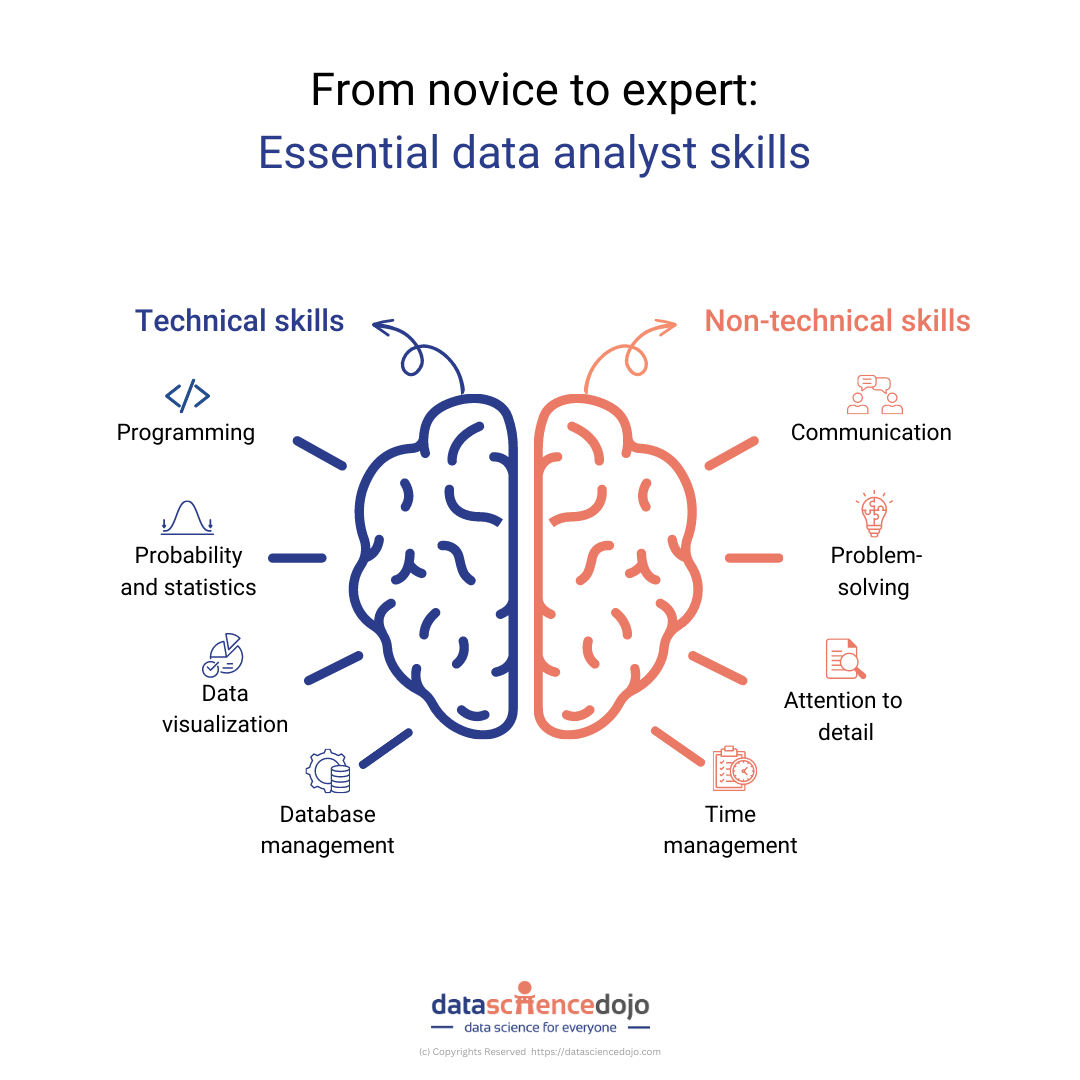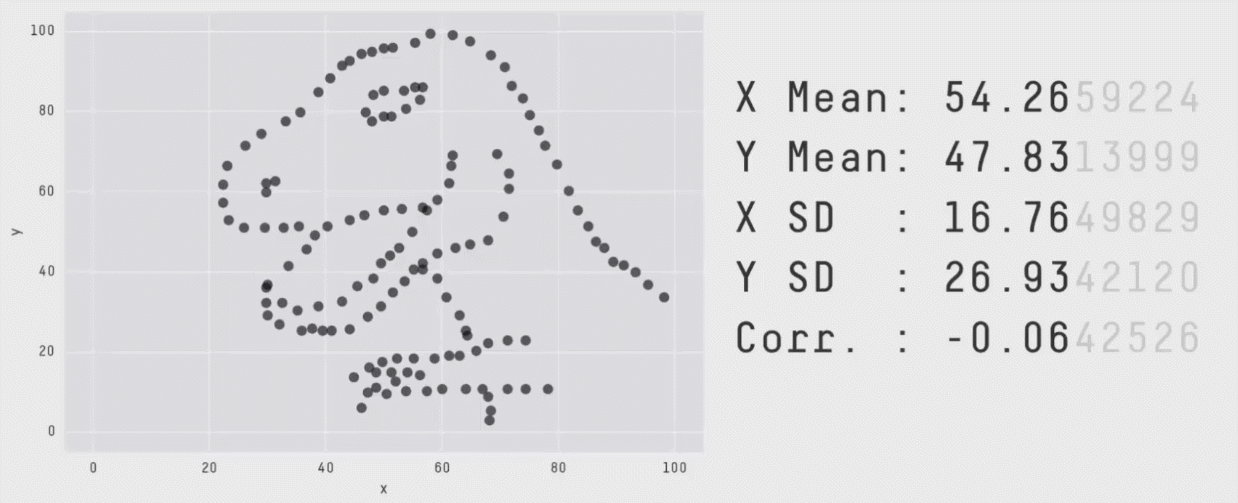It is no surprise that the demand for a skilled data analyst grows across the globe. In this blog, we will explore eight key competencies that aspiring data analysts should focus on developing.
Data analysis is a crucial skill in today’s data-driven business world. Companies rely on data analysts to help them make informed decisions, improve their operations, and stay competitive. And so, all healthy businesses actively seek skilled data analysts.

Becoming a skilled data analyst does not just mean that you acquire important technical skills. Rather, certain soft skills such as creative storytelling or effective communication can mean a more all-rounded profile. Additionally, these non-technical skills can be key in shaping how you make use of your data analytics skills.
Technical skills to practice as a data analyst:
Technical skills are an important aspect of being a data analyst. Data analysts are responsible for collecting, cleaning, and analyzing large sets of data, so a strong foundation in technical skills is necessary for them to be able to do their job effectively.
Some of the key technical skills that are important for a data analyst include:
1. Probability and statistics:
A solid foundation in probability and statistics ensures your ability to identify patterns in data, prevent any biases and logical errors in the analysis, and lastly, provide accurate results. All these abilities are critical to becoming a skilled data analyst.
Consider, for example, how various kinds of probabilistic distributions are used in machine learning. Other than a strong understanding of these distributions, you will need to be able to apply statistical techniques, such as hypothesis testing and regression analysis, to understand and interpret data.
2. Programming:
As a data analyst, you will need to know how to code in at least one programming language, such as Python, R, or SQL. These languages are the essential tools via which you will be able to clean and manipulate data, implement algorithms and build models.
Moreover, statistical programing languages like Python and R allow advanced analysis that interfaces like Excel cannot provide. Additionally, both Python and R are open source.
3. Data visualization:
A crucial part of a data analyst’s job is effective communication both within and outside the data analytics community. This requires the ability to create clear and compelling data visualizations. You will need to know how to use tools like Tableau, Power BI, and D3.js to create interactive charts, graphs, and maps that help others understand your data.

4. Database management:
Managing and working with large and complex datasets means having a solid understanding of database management. This includes everything from methods of collecting, arranging, and storing data in a secure and efficient way. Moreover, you will also need to know how to design and maintain databases, as well as how to query and manipulate data within them.
Certain companies may have roles particularly suited to this task such as data architects. However, most will require data analysts to perform these duties as data analysts responsible for collecting, organizing, and analyzing data to help inform business decisions.
Organizations use different data management systems. Hence, it helps to gain a general understanding of database operations so that you can later specialize them to a particular management system.
Non-technical skills to adopt as a data analyst:
Data analysts work with various members of the community ranging from business leaders to social scientists. This implies effective communication of ideas to a non-technical audience in a way that drives informed, data-driven decisions. This makes certain soft skills like communication essential.
Similarly, there are other non-technical skills that you may have acquired outside a formal data analytics education. These skills such as problem-solving and time management are transferable skills that are particularly suited to the everyday work life of a data analyst.
1. Communication:
As a data analyst, you will need to be able to communicate your findings to a wide range of stakeholders. This includes being able to explain technical concepts concisely and presenting data in a visually compelling way.
Writing skills can help you communicate your results to wider members of population via blogs and opinion pieces. Moreover, speaking and presentation skills are also invaluable in this regard.
Read about Data Storytelling and its importance
2. Problem-solving:
Problem-solving is a skill that individuals pick from working in different fields ranging from research to mathematics, and much more. This, too, is a transferable skill and not unique to formal data analytics training. This also involves a dash of creativity and thinking of problems outside the box to come up with unique solutions.
Data analysis often involves solving complex problems, so you should be a skilled problem-solver who can think critically and creatively.
3. Attention to detail:
Working with data requires attention to detail and an elevated level of accuracy. You should be able to identify patterns and anomalies in data and be meticulous in your work.
4. Time management:
Data analysis projects can be time-consuming, so you should be able to manage your time effectively and prioritize tasks to meet deadlines. Time management can also be implemented by tracking your daily work using time management tools.
Final word
Overall, being a data analyst requires a combination of technical and non-technical skills. By mastering these skills, you can become an invaluable member of any team and make a real impact with your data analysis.

